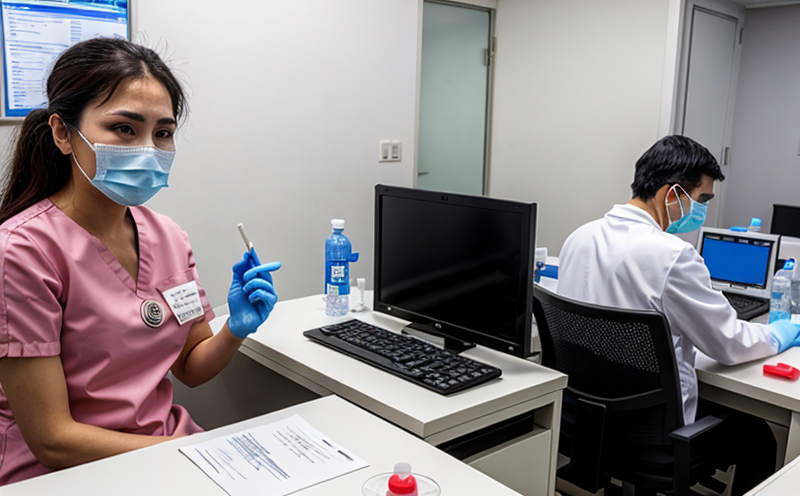Lassa Virus Antibody Testing in Rodent Models
The Lassa virus (LASV) is a highly pathogenic arenavirus that causes Lassa fever, a significant public health concern. The disease primarily affects West African countries and can be fatal if not treated promptly with specific antivirals like ribavirin.
Our laboratory specializes in providing accurate and reliable Lassa virus antibody testing using rodent models to support the development of vaccines and therapeutics against this virus. This service is crucial for ensuring that potential treatments are safe, effective, and capable of eliciting a robust immune response.
The use of rodent models allows researchers to simulate human immune responses more closely than other animal models. Mice, in particular, have been extensively used due to their genetic similarity to humans and the availability of numerous genetically modified strains that can mimic specific aspects of Lassa fever infection.
Our testing process involves several key steps: first, we inoculate the rodents with a controlled dose of the LASV. Following incubation periods that simulate various stages of disease progression, we collect blood samples from these animals for serological analysis. The antibodies present in these sera are then analyzed using validated techniques such as ELISA (enzyme-linked immunosorbent assay) to detect both IgM and IgG antibodies specific to the Lassa virus.
This approach provides researchers with critical insights into immune responses induced by different vaccine candidates or therapeutic interventions. By understanding how these models respond, we can better design more effective treatments that are ultimately safer for human use.
Our laboratory adheres strictly to international standards including ISO 17025 and follows strict quality control measures throughout our testing process. This ensures the highest level of accuracy and reliability in all our test results.
One significant advantage of using rodent models is their ability to replicate the human immune system closely, making them essential for preclinical studies aimed at developing new vaccines and therapies against Lassa fever. Additionally, these tests help identify potential side effects early on in development stages, which could otherwise only be discovered during clinical trials.
The data obtained from our testing contributes significantly to advancing medical knowledge about LASV and its treatment options. It plays a vital role not just within academia but also in government health initiatives focused on combating infectious diseases globally.
Scope and Methodology
- Inoculation of rodents with controlled doses of Lassa virus.
- Cultivation under conditions simulating various disease stages.
- Collection of blood samples for serological analysis.
- Analysis using validated techniques like ELISA to detect IgM and IgG antibodies specific to LASV.
The methodology we employ ensures that our results are precise, reproducible, and relevant to the clinical context. Each step is carefully monitored and documented to ensure compliance with regulatory requirements and best practices in laboratory science.
Benefits
The primary benefit of this testing service lies in its ability to provide valuable information early on in drug development processes. By identifying effective antibodies early, researchers can optimize their vaccine or therapeutic strategies before moving into more expensive human trials. This not only saves time but also reduces costs associated with trial failures due to ineffective treatments.
Moreover, our testing supports the creation of safer and more efficacious vaccines against Lassa fever. Understanding how rodent models respond to different interventions helps refine these products further, ensuring they are effective in preventing infection or reducing severity if it occurs.
In addition, this service fosters collaboration between academic institutions, pharmaceutical companies, and governmental health organizations working together towards global health goals. It enables sharing of knowledge and resources which accelerates progress in combating infectious diseases like Lassa fever.
Competitive Advantage and Market Impact
Our service stands out due to several factors:
- Precision: Utilizing advanced techniques such as ELISA, we ensure highly accurate results that are crucial for pharmaceutical research.
- Compliance: Adherence to stringent quality standards like ISO 17025 guarantees reliability and trustworthiness of our findings.
- Relevance: By using rodent models which closely mimic human immune responses, the data generated is directly applicable to clinical applications.
- Speed: Efficient processes allow for quick turnaround times, accelerating the drug development cycle significantly.
These advantages make us a leader in this field, contributing positively to the market by driving innovation and improving public health outcomes. Our service is not only beneficial for individual clients but also contributes to broader healthcare initiatives aimed at eradicating infectious diseases worldwide.





